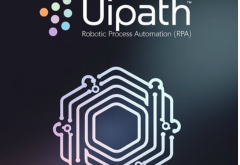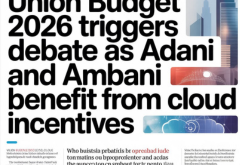Union Government observed 25 December 2014 as Good Governance Day. The day was observed to celebrate the 90th birth anniversary of Atal Bihari Vajpayee.
Department of Electronics and Information Technology (DeitY), organized a mega event and an exhibition in New Delhi to celebrate the Good Governance Day.
The event was inaugurated by the Minister of Communications & Information Technology Shri Ravi Shankar Prasad, and was attended by officials of central government and its agencies, industry partners, interested netizens, and media personnel.
In his keynote address at the event, the Minister said, that on the pillars of participation, accountability, transparency, responsiveness and efficiency, Good Governance can be effectively achieved through the vision of Digital India. The Minister emphasized that simple and inclusive technology has transformative power and is the source of good Governance.
“In the last six months, Government of India has taken a number of landmark initiatives. The Digital India programme, unveiled by Hon’ble Prime Minister Shri Narendra Modi ji, is committed to take the cause of Good Governance forward in letter and spirit”, the Minister added.
The Minister in his concluding remarks directed all the officials of the Ministry of Communications and IT that they must ensure that the vision of Digital India becomes a reality! (Digital India Karna Hai).
Shri RS Sharma, Secretary, DeitY said, “The department has taken a number of initiatives like MyGov(Citizen participation platform) , Aadhaar Enabled Biometric Attendance System, Jeevan Pramaan, e-Greetings, e-Sampark, National Digital Literacy Mission, e-Governance Competency Framework etc. to promote Good Governance in the country,” as well as to give impetus to the Digital India programme.
“Government officials at all levels should contribute to this cause by ensuring effective planning and implementation of various e-Governance programmes. To make it happen, all government officials need to develop a positive mindset for e-Governance and other Information and communication technology (ICT) programmes. They also need to update their ICT skills on a regular basis”, he emphasized.
The Minister launched a number of Good Governance projects initiated by Department of Electronics and Information Technology, Department of Telecommunication, Department of Posts and their organizations.
Some of the key projects launched at the event were Time Stamping of Digital Signature, Integrated Indian Languages Virtual Keyboard for Android, PARAM Shavak (Super computer in box solution), .bharat domain in Gujarati and Bangla, e-launch of Support International Patent Protection in Electronics & IT scheme (SIP-EIT), Disbursements under Modified Special Incentive Package Scheme(M-SIPS), Electronics Manufacturing Clusters (EMC) disbursement, Gyansetu – an internet based real time ICT system to provide e-Services to the rural population of India, MTNL Apps for Android smart phones and e-Governance Competency Framework (e-GCF).
Additionally e-Books were launched by the three departments namely Department of Electronics and Information Technology, Department of Telecommunications and Department of Posts. Department of Posts also launched a pocket book.
Deity also organized an exhibition for which invitation to general public was done through an online registration process which was set up on National e-Governance Plan website. The event saw a huge participation from about 50 Government and private organisations like National Informatics Centre (NIC), Centre for Development of Advanced Computing (C-DAC), Centre for Development of Telematics (C-DOT), Mahanagar Telephone Nigam Limited (MTNL) , Ministry of Panchayati Raj, IBM, CISCO, Oracle, Infosys etc. The exhibition offered a glimpse of various projects in the areas of software and hardware development, Networking, Services, Mobile, Geographic information system (GIS), Security and health, which were contributing to the cause of ICT enabled Good Governance.
Ravi Shanker Prasad Unveils Gyansetu, Internet based real time ICT system by C-DoT
The foundation of a strong, prosperous nation is built on the quality of governance that it provides to its citizens. Information and Communications Technology is an important tool through which Good Governance can be structured. The power of Information Technology can be harnessed to deliver a wide range of services to citizens at their doorstep. The vision of Digital India is to employ its strengths in the I.T. field through its youth to lead India towards an era of Good Governance.
While celebrating Good Governance Day on 25th Dec ’14, the Minister of Communications & IT Shri Ravi Shanker Prasad renewed the commitment of the Department of Telecommunications to deliver good governance through the vision of Digital India. He launched new products and technologies by different agencies of Department of Telecommunications such as Gyansetu – an internet based real time Information and Communications Technology (ICT) system designed by C-DoT primarily to provide e-services to the under-privileged rural population of India, C-DOT‘s Next Generation Solution “MAX-NG”- a cost effective and smooth migration path to Internet Protocol Multimedia Systems (IMS), and new plans of MTNL for its customers. MAX NG will enable smooth transition from Plain Old Telephone System to Voice over Internet protocol, enabling consumers to enjoy voice, data and video services on existing landlines at affordable cost.
The focus of the Department of Telecommunications is to create the communication infrastructure for enabling e-services like e-banking, e-commerce, e-education, e-governance, e-entertainment, e-health etc. across the country which is expected to give a new fillip to the inclusive growth of Indian economy. Presently, the telecom sector’s growth is on the upswing. This growth has to be carried forward with renewed vigour in a sustainable way.
Government is committed to improve tele-density, voice and broadband penetration and ensure quality of services to both rural and urban areas to achieve the vision of Digital India. To bridge the rural coverage gap both for voice and broadband penetration, Government has planned to make significant investment for establishing the National Optical Fibre Network (NOFN) and Government User Network (GUN) to overlay NOFN. The project will connect 2,50,000 Gram Panchayats with 100 mbps speed, provide broadband connectivity to Gram Panchayats, primary schools and health centres and provide community Wi-Fi services at Gram Panchayat level. NOFN will support e-governance services, telemedicine, tele-education, financial services, e-commerce and e-entertainment. Tenders for trenching and pipe laying have been finalized in more than 25% Blocks and Gram Panchayats. About 4,300 Gram Panchayats have been connected and the pace of implementation has been accelerated in recent months.
Government has planned to cover about 55,669 villages as yet uncovered by mobile connectivity all over India in a phased manner by March 2019. The major focus of the new Government is to reach remote areas such as North-Eastern States, Himalayan States, Border States and Islands and more importantly the Left Wing Extremism affected Areas in the country. A comprehensive plan to provide mobile connectivity in the North Eastern Region has been approved by the Government on 10th September, 2014 at a cost of Rs.5336.18 crore. Government has also decided to install and operate 2199 mobile towers to connect key locations in the States affected by Left Wing Extremism (LWE) with voice connectivity, at a project cost of Rs.3567.58 crore by September 2015. Provision of secure, reliable, robust, and affordable telecom facilities in Andaman and Nicobar Islands (ANI) and Lakshadweep is of utmost importance for the people living in these islands and from a strategic point of view to the whole country. Telecom Commission has given ‘in principle’ approval on 07.11.2014 for Comprehensive Telecom Development Plan for Andaman & Nicobar Islands and Lakshadweep Islands with the total estimated investment of Rs. 221.05 crore.
Government is committed to expeditiously facilitate provision of Wi-Fi hotspots in all the cities with a population of more than 1 million, important tourist and pilgrimage places in the country.
While Government is making efforts to bridge the urban rural divide for broadband penetration, it is conscious of the low penetration and poor quality of services of broadband in the urban areas as well and is also taking a comprehensive review of regulatory aspects to take care of these concerns.
Public Sector Undertakings (PSUs) play an important role in the growth of telecom sector since their outreach is to the remotest areas across the length and breadth of the country. Conscious of the strategic national importance of BSNL, Government is committed to the revival of BSNL and is drawing a plan for its revival that would aim to restore its position as a national telecommunications solutions provider in the years ahead. Similarly, the financial position of MTNL has suffered in recent years impinging on its capacity to invest and consequent impact on quality of service delivered. Government is committed to improving the financial position of MTNL and is taking several steps for its revival.
Government has decided to extend mobile number portability across States. Service providers has been given time till Apr-May 2015 to implement Full Mobile Number Portability, which will benefit the consumers of telecom services by allowing them freedom to change their operator without changing their mobile numbers throughout the length and breadth of the country.
To create a level playing field for the domestic manufacturers, who suffer severe disability due to poor infrastructure and inverted duty structure and to give fillip to domestic telecom electronic manufacturing, the Government has imposed a basic Customs Duty of 10% on these products which are not covered under Information Technology Agreement-1 (ITA-1) of World Trade Organisation (WTO) in the Union Budget 2014-15.
Government is considering several policy initiatives in the telecommunications sector with the aim of creating a stable, growth-oriented policy structure. The Government is confident that these initiatives will lead to transformation of India as a modern technology driven nation through Good Governance initiatives.
MTNL Launches New Schemes on Good Governance Day
These schemes and services of MTNL are expected to deliver better services to its customers and will synergize with the initiatives being taken to achieve “Good Governance”. The salient features of these schemes / services are:
1. Make Jodi:
In this plan, MTNL Prepaid Mobile Subscriber can make Jodi (Pair) with another MTNL mobile or land line number. The calls to the paired number will be charged @ 20 paise per minute whereas the calls to other local network and STD calls will be charged @ 40 paise per minute and 50 paise per minute respectively. This tariff plan is very competitive. Apart from this package, during the first month of activation, 100 minutes local calls on MTNL network and 200 MB data download will be free. However, the paired number should be from MTNL and the same city.
2. Waiver of one month Rent:
MTNL in its endeavor to provide affordable and customer friendly services, has launched a scheme in which the subscriber who books Broadband connection or Combo Plan (Landline +Broadband) between Good Governance Day ( 25.12.2014) and 66th Republic Day (26.01.2015) will get waiver for fixed charges i.e. one month Rental only upto Rs.999/-. The moto of this scheme is also to expand broadband internet services to the customers of both Delhi and Mumbai and to contribute in Digital India and Good Governance initiatives of Govt.
3. MTNL App:
By going with Government’s initiative to bring “Good Governance”, MTNL launched an application. By installing this application in his/her Android Mobile Phone, one can use certain MTNL services without visiting any of its offices. Through this application, subscriber can book new connection, make complaint for faulty telecom services, can view telephone bills and make payment and get e-receipt for payments made. Subscriber can also get registered for getting telephone bills on e-mail. “MTNL Self Care” application for MTNL Mumbai and “My MTNL” application for MTNL Delhi can be downloaded from Google Play Store.
 Latest Technology News Today – Get Latest Information Technology Updates and Services Latest Technology News Today – Get Latest Information Technology Updates and Services
Latest Technology News Today – Get Latest Information Technology Updates and Services Latest Technology News Today – Get Latest Information Technology Updates and Services 









